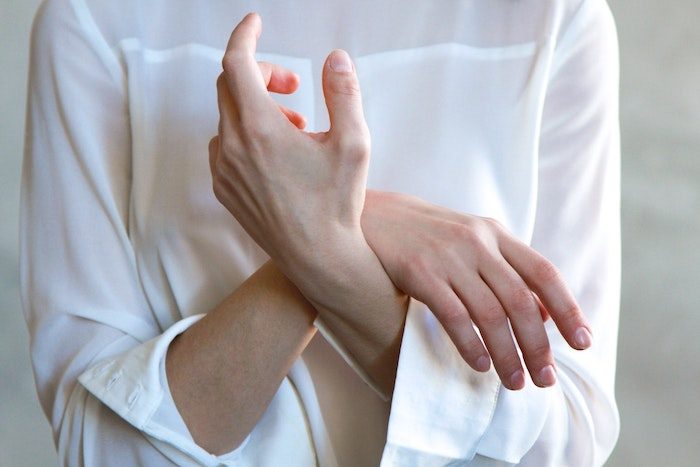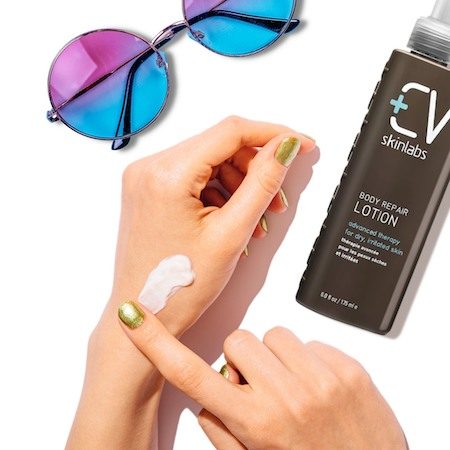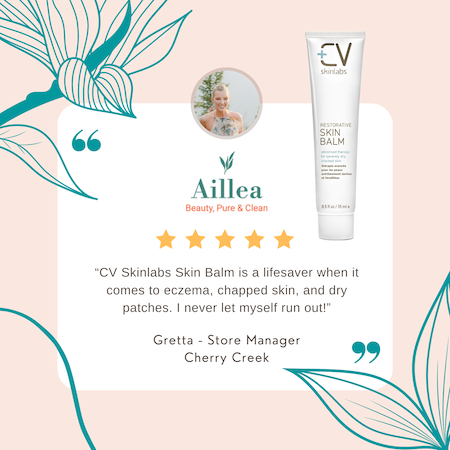
Some of our customers have been asking us lately: Why do my hands look so old?
Most of us learn early on to take good care of the skin on our faces. But our hands? That’s another story.
Then one day we look at a picture of our hands or we simply look down and think, “What happened?”
In this post, we shed a little light on how the skin on your hands ages differently than the skin on your face, and what you can do to make that skin look young again!
Why Do My Hands Look So Old?
Several factors are working against you when it comes to maintaining youthful hands.
Wear and Tear
The first is that we’re hard on our hands. We use them to do just about everything. They’re more exposed to the weather, the sun, and the pollutants in the environment than almost any other part of our bodies (except our faces.) We’re also regularly plunging them into detergents and other solutions with chemicals in them that aren’t good for our skin.
Second, we wash our hands a lot more than we wash anything else. That’s good because our hands are constantly coming into contact with objects that may have germs on them. But all that washing strips the skin on our hands of its natural moisture, drying them out. It’s easy to get dry, flaky, chapped hands in just a few days if you’re not careful, particularly in the cold, winter weather.
Over time, all this wear and tear takes its toll and our hands end up looking dry, dull, flaky, and old. The outer barrier breaks down, skin sags into the knuckles and tendons, and you see crevices all over the back of your hands that remind you of your grandmother’s hands.
Harsh Products
The cleansers we use on our hands, too, can be harsh. We use the cleanser in the public bathrooms which is often made up of harsh surfactants that are hard on our hands. Most public restrooms have no lotion available, so unless you’re toting some of your own, you’re washing and going, leaving your hands starving for moisture.
Those of us who are still using hand sanitizer are often exposing our hands to drying alcohol as well. The alcohol in these products does a good job of killing bacteria, but it’s also really good at drying out the skin.
Lack of Nourishment
All of the above wears down the skin’s defenses. We could keep up with it if we carefully nourished and moisturized our hands, but most of us don’t think about doing that. So we don’t give our hands the nutrients they need to bounce back from all the abuse.
We are regularly slathering our faces with anti-aging serums, exfoliants, moisturizers, antioxidants, and more. But our hands? It just doesn’t enter our minds that maybe we should be doing the same for them.
Aging
You see the effects of aging on your face. You notice the fine lines and wrinkles, the sagging, and the puffiness. The same changes happen in your hands—and often, at a more accelerated rate because they aren’t receiving the same level of care.
As you age, your hands—just like your face—lose fat, elasticity, and volume. This causes that thin, wrinkled skin that describes older hands and can leave you more vulnerable to sun damage and age spots.
Help for Hands that Look Old!
No matter how old you are, you can help your hands look and feel younger with a little TLC. We suggest the following steps.
1. Cleanse Gently
You can’t choose what cleanser they use in public restrooms, but you can choose the one you use at home. Look for a creamy cleanser that adds moisture back into the skin. The more you can protect your skin when cleansing, the more you’ll prevent that damage from building up and making your skin look old.
2. Reduce UV Exposure
Sun exposure damages the skin on your hands. Over time, it can create sagging, thin skin, and age spots. Protect your hands by applying sunscreen daily and wearing gloves in bad weather.
Treatment tip: If you have age spots, you can treat them at home in a couple of ways. First, start exfoliating your hands a couple of times a week. You can use the same exfoliating product you use on your face.
Consider a skin-lightening cream that may help fade the dark spots. These products can take a few months to work, but they are often effective. Look for solutions with ingredients like kojic acid, vitamin C, niacinamide, retinol, arbutin, azelaic acid, and ellagic acid. Some of these ingredients can contribute to irritation or sun sensitivity, so be sure to protect your hands with sunscreen.
For those with sensitive skin, use a natural skin lightening remedy like CV Skinlabs Restorative Skin Balm. It’s full of nourishing ingredients like castor oil that work well for lightening dark spots naturally. It all contains fatty acids and antioxidants that fight free radicals and even out skin tone.
3. Protect Your Hands
Start seeing your hands as something you need to protect. Wear gloves when gardening, cleaning, or washing the dishes. Remember that cleansers have harsh chemicals in them. Use rubber gloves on housecleaning days.
Wear gloves when going out in the harsh weather, or anytime, really, if you want to keep your hands looking young. You can choose lighter gloves for the warmer weather.
4. Exfoliate Your Hands
You’ve probably been exfoliating your face right along. But have you ever exfoliated your hands?
If not, it’s time to start—no matter what your age. Just like dead skin cells build up on your face, they do the same on your hands. Regularly exfoliating them helps them shed that dead skin layer so the younger, plumper cells can rise to the top.
Treatment tip: Exfoliate your hands 2-3 times a week. You can use the same product that you use on your face, or try a gentle sugar scrub. Sometimes your hands need a little firmer exfoliation than your face.
Watch your skin for signs of what works best. If your hands become red and irritated, switch to a gentler exfoliator with fruit acids like salicylic, malic, and lactic. Again, these ingredients can increase sun sensitivity so always use sunscreen.
5. Moisturize More Often
Once your hands start aging, that’s a sign that your skin is crying out for moisture. Commit to making a change in your hand-care routine. From now on, don’t let your hands dry out. Make a habit of putting on lotion regularly every time after you wash your hands, plus first thing in the morning and last thing at night.
Treatment tip: Stock up on your favorite hand moisturizers and place them at every sink around the house. We recommend our Body Repair Lotion as it will help replenish the nutrients the skin has lost while creating a radiant appearance on your hands. It comes in a mini size as well, so you can take it along anywhere.
If your hands are in need of serious TLC, use our Restorative Skin Balm daily and even as an overnight treatment. It helps protect your skin by creating an occlusive breathable barrier that locks moisture in.
Slather your hands with the healing ointment, then wear cotton gloves to bed every night for a week. You should notice that your hands start to feel and look softer and smoother. You can repeat this process anytime your hands look like they need an extra dose of moisture.
6. Choose and Use an Anti-Aging Product
When the wrinkles started showing up on your face, what did you do? You looked for an effective wrinkle cream, right?
You may want to use that same cream on your hands if you’re noticing wrinkles. Take a minute to examine your hands to see what the problem is. Maybe you have crepey skin. In that case, use a retinol cream to help jumpstart collagen production. Our Restorative Skin Balm also contains powerful antioxidants and our Tri-Rescue Complex that helps smooth wrinkles, boost collagen, and improve elasticity.
If you have age spots, choose a lightening cream. Scaley skin? Exfoliate a bit more often, then follow with an all-night moisturizing mask.
7. Tend to Your Nails
How your nails look can have a big impact on how your hands look overall. If they have yellow stains—and if those stains are accompanied by pain—you may have a fungal infection. Check with your doctor to treat it right away.
Discoloration may also be caused by nail polish or it could be a side effect of psoriasis. If either of these is true, try rubbing a lemon wedge on the nails or soak them in denture cleaner for 15-20 minutes.
If you have brittle nails, ask your doctor about taking vitamin B supplements, as they can help. Then make sure that you’re softening your cuticles every night before going to bed. We recommend using our Restorative Skin Balm, as it works great as a cuticle softener and can help heal any irritation.
Do you notice aging on your hands?




